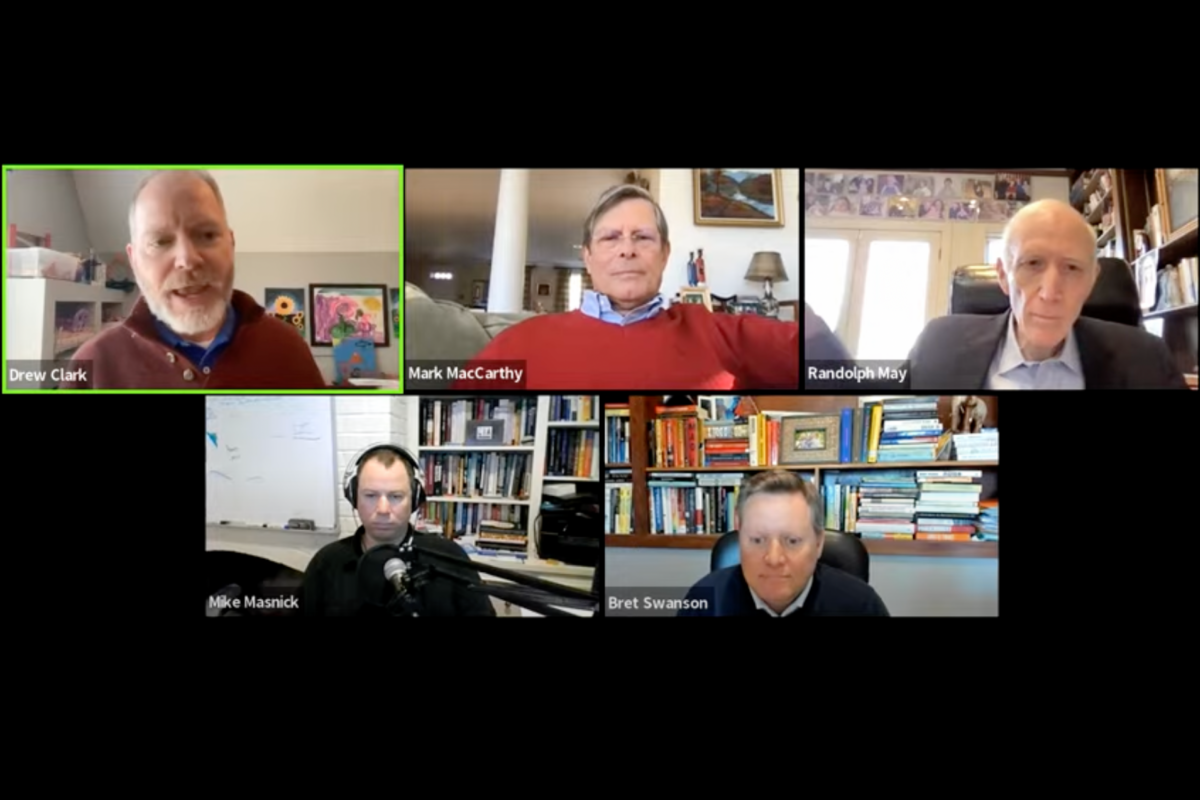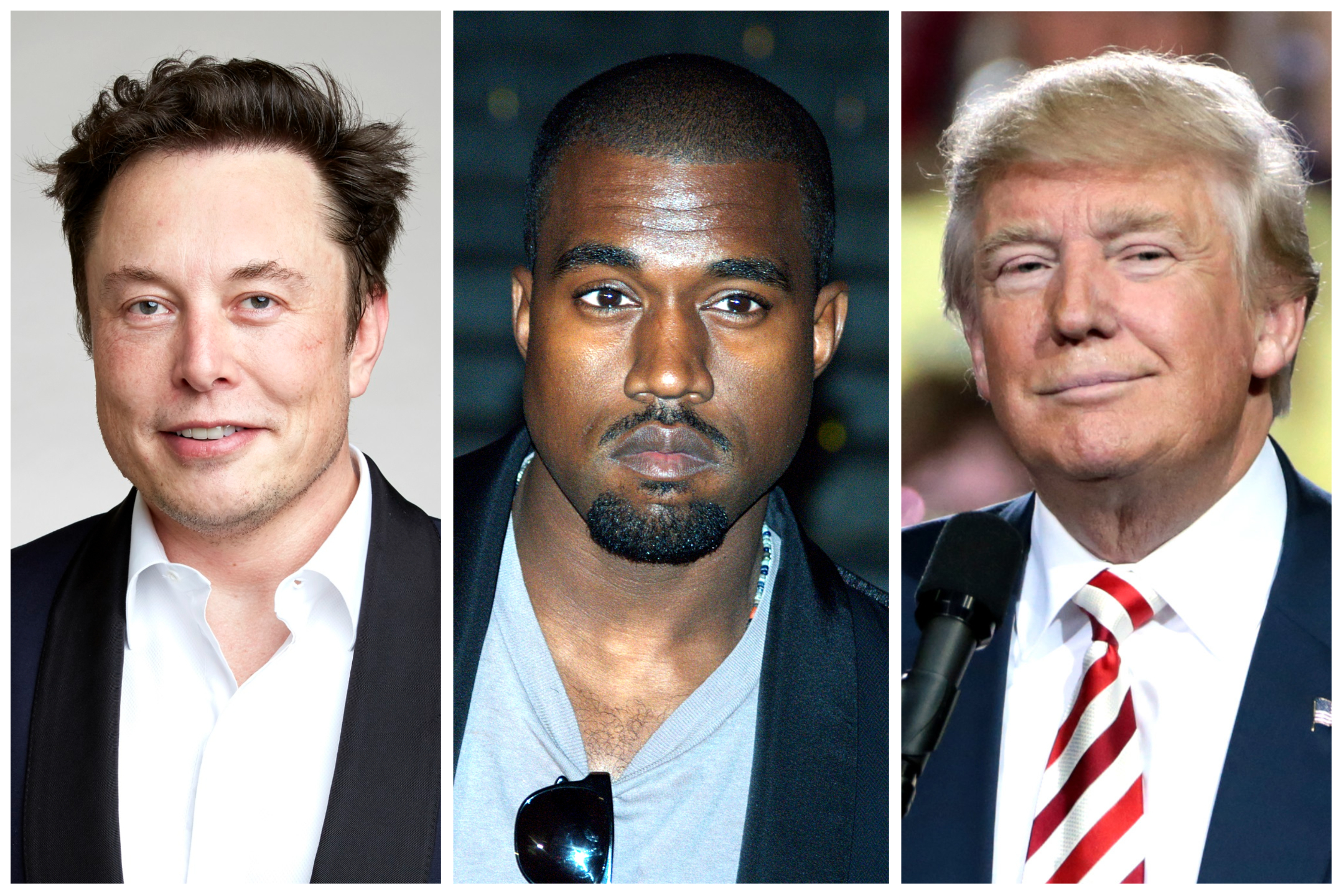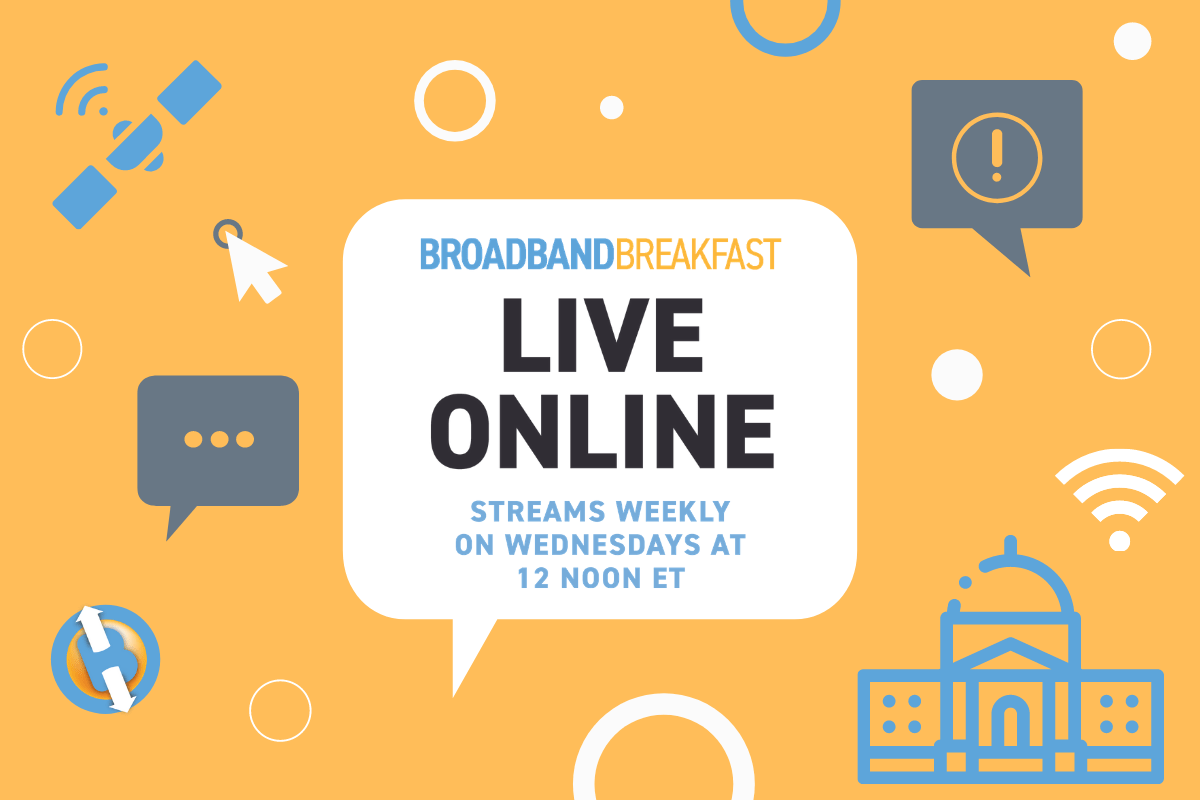Twitter Takeover by Elon Musk Forces Conflict Over Free Speech on Social Networks
Transparency laws in Calif. and N.Y. are the ‘liberal’ counterpart to the ‘conservative’ speech laws in Texas and Florida.

WASHINGTON, November 23, 2022 — As the Supreme Court prepares to hear two cases that may decide the future of content moderation, panelists on a Broadband Breakfast Live Online panel disagreed over the steps that platforms can and should take to ensure fairness and protect free speech.
Mike Masnick, founder and editor of Techdirt, argued that both sides of the aisle were attempting to control speech in one way or another, pointing to laws in California and New York as the liberal counterpoints to the laws in Texas and Florida that are headed to the Supreme Court.
“They’re not as blatant, but they are nudging companies to moderate in a certain way,” he said. “And I think those are equally unconstitutional.”
Censorship posed a greater threat to the ideal of free speech than would a law forcing platforms to carry certain content, said Bret Swanson, a nonresident senior fellow at the American Enterprise Institute.
“Free speech and pluralism, as an ethos for the country and really for the West, are in fact more important than the First Amendment,” he said.
At the same time, content moderation legislation is stalled by a sharp partisan divide, said Mark MacCarthy, a nonresident senior fellow in governance studies at the Brookings Institution’s Center for Technology Innovation.
“Liberals and progressives want action to remove lies and hate speech and misinformation from social media and the conservatives want equal time for conservative voices, so there’s a logjam gridlock that can’t move,” he said. “I think it might be broken if, as I predict, the Supreme Court says that the only way you can regulate social media companies is through transparency.”
Twitter’s past and current practices raise questions about bias and free speech
While talking about Elon Musk’s controversial changes to Twitter’s content moderation practices, panelists also discussed the impact of Musk’s rhetoric surrounding the topic more broadly.
“Declaring yourself as a free speech site without understanding what free speech actually means is something that doesn’t last very long,” Masnick said.
When a social media company like Twitter or Parler declares itself to be a “free speech site,” it is really just sending a signal to some of the worst people and trolls online to begin harassment, abuse and bigotry, he said.
That is not a sustainable business model, Masnick argued.
But Swanson took the opposite approach. He called Musk’s acquisition of Twitter “a real seminal moment in the history and the future of free speech,” and called it an antidote to “the most severe collapse of free speech maybe in American history.”
MacCarthy said he didn’t believe the oft-repeated assertion that Twitter was biased against conservatives before most Musk took over. “The only study I’ve seen of political pluralism on Twitter — and it was done by Twitter itself back when they had the staff to do that kind of thing — suggested that Twitter’s amplification and recommendation engines actually favored conservative tweets over liberal ones.”
Masnick agreed, pointing to other academic studies: “They seemed to bend over backwards to often allow conservatives to break the rules more than others,” he said.
Randolph May, president of The Free State Foundation, said that he was familiar with the studies but disagreed with their findings.
Citing the revelations from the laptop of Hunter Biden, a story that the New York Post broke in October 2020 about the Joe Biden’s son, May said: “To me, that that was a consequential censorship action. Then six months later before a congressional committee, [Twitter CEO] Jack Dorsey said, ‘Oops, we made we made a big mistake when we took down the New York Post stories.’”
Multiple possibilities for the future of content moderation
Despite his criticism of current practices, May said he did not believe platforms should eliminate content moderation practices altogether. He drew a distinction between topics subject to legitimate public debate and those posts that encourage terrorism or facilitate sex trafficking. Those kinds of posts should be subject to moderation practices, he said.
May made three suggestions for better content moderation practices: First, platforms should establish a presumption that they will not censor or downgrade material without clear evidence that their terms of service have been violated.
Second, platforms should work to enable tools that facilitate personalization of the user experience.
Finally, the current state of Section 230 immunity should be replaced with a “reasonableness standard,” he said.
Other panelists disagreed with the subjectivity of such a reasonableness standard. MacCarthy highlighted the Texas social media law, which bans discrimination based on viewpoint. “Viewpoint is undefined: What does that mean?” he asked.
“Does it mean you can’t get rid of Nazi speech, you can’t get rid of hate speech, you can’t get rid of racist speech? What does it mean? No one knows. And so here’s a requirement of government that no one can interpret. If I were the Supreme Court, I’d declare that void for vagueness in a moment.”
MacCarthy predicted that the Supreme Court would reject the content-based provisions in the Texas and Florida laws while upholding the transparency standard, opening the door, he argued, for bipartisan transparency legislation.
But to Masnick, even merely a transparency requirement would be an unsatisfactory result: “How would conservatives feel if the government said, ‘Fox News needs to be transparent about how they make their editorial decision making?’”
“I think everyone would recognize immediately that that is a huge First Amendment concern,” he said.
Our Broadband Breakfast Live Online events take place on Wednesday at 12 Noon ET. Watch the event on Broadband Breakfast, or REGISTER HERE to join the conversation.

Wednesday, November 23, 2022, 12 Noon ET – Elon and Ye and Donald, Oh My!
With Elon Musk finally taking the reins at Twitter after a tumultuous acquisition process, what additional new changes will come to the world’s de facto public square? The world’s richest man has already reinstated certain banned accounts, including that of former president Donald Trump. Trump has made his own foray into the world of conservative social media, as has politically polarizing rapper Ye, formerly Kanye West, currently in the process of purchasing right-wing alternative platform Parler. Ye is no stranger to testing the limits of controversial speech. With Twitter in the hands of Musk, Parler in the process of selling and Trump’s Truth Social sort-of-kind-of forging ahead in spite of false starts, is a new era of conservative social media upon us?
Panelists
- Mark MacCarthy, Nonresident Senior Fellow in Governance Studies, Center for Technology Innovation, Brookings Institution
- Mike Masnick, Founder and Editor, Techdirt
- Randolph May, President, The Free State Foundation
- Bret Swanson, Nonresident Senior Fellow, American Enterprise Institute
- Drew Clark (moderator), Editor and Publisher, Broadband Breakfast
Panelist resources:
- Free Speech and Disinformation Articles, Entropy Economics
- Thinking Clearly About Speaking Freely Series, The Free State Foundation
- Trump’s Twitter Account Reinstated as Truth Social Gets Merger Extension, Broadband Breakfast, November 22, 2022
- Experts Reflect on Supreme Court Decision to Block Texas Social Media Bill, Broadband Breakfast, June 2, 2022
- Narrow Majority of Supreme Court Blocks Texas Law Regulating Social Media Platforms, Broadband Breakfast, May 31, 2022
- Parler Policy Exec Hopes ‘Sustainable’ Free Speech Change on Twitter if Musk Buys Platform, Broadband Breakfast, May 16, 2022
- Experts Warn Against Total Repeal of Section 230, Broadband Breakfast, November 22, 2021
- Broadband Breakfast Hosts Section 230 Debate, Broadband Breakfast, June 1, 2021
- Explainer: With Florida Social Media Law, Section 230 Now Positioned In Legal Spotlight, Broadband Breakfast, May 25, 2021
Mark MacCarthy is a Nonresident Senior Fellow in Governance Studies at the Center for Technology Innovation at Brookings. He is also adjunct professor at Georgetown University in the Graduate School’s Communication, Culture, & Technology Program and in the Philosophy Department. He teaches courses in the governance of emerging technology, AI ethics, privacy, competition policy for tech, content moderation for social media, and the ethics of speech. He is also a Nonresident Senior Fellow in the Institute for Technology Law and Policy at Georgetown Law.
Mike Masnick is the founder and editor of the popular Techdirt blog as well as the founder of the Silicon Valley think tank, the Copia Institute. In both roles, he explores the intersection of technology, innovation, policy, law, civil liberties, and economics. His writings have been cited by Congress and the EU Parliament. According to a Harvard Berkman Center study, his coverage of the SOPA copyright bill made Techdirt the most linked-to media source throughout the course of that debate.
Randolph May is founder and president of The Free State Foundation, an independent, non-profit free market-oriented think tank founded in 2006. He has practiced communications, administrative, and regulatory law as a partner at major national law firms. From 1978 to 1981, May served as Assistant General Counsel and Associate General Counsel at the Federal Communication Commission. He is a past Chair of the American Bar Association’s Section of Administrative Law and Regulatory Practice.
Bret Swanson is president of the technology research firm Entropy Economics LLC, a nonresident senior fellow at the American Enterprise Institute, a visiting fellow at the Krach Institute for Tech Diplomacy at Purdue University and chairman of the Indiana Public Retirement System (INPRS). He writes the Infonomena newsletter at infonomena.substack.com.
Drew Clark (moderator) is CEO of Breakfast Media LLC, the Editor and Publisher of BroadbandBreakfast.com and a nationally-respected telecommunications attorney. Under the American Recovery and Reinvestment Act of 2009, he served as head of the State Broadband Initiative in Illinois. Now, in light of the 2021 Infrastructure Investment and Jobs Act, attorney Clark helps fiber-based and wireless clients secure funding, identify markets, broker infrastructure and operate in the public right of way.

Social media controversy has centered around Elon Musk’s Twitter, Ye’s new role in Parler, and former U.S. President Donald Trump

WATCH HERE, or on YouTube, Twitter and Facebook.

As with all Broadband Breakfast Live Online events, the FREE webcasts will take place at 12 Noon ET on Wednesday.
SUBSCRIBE to the Broadband Breakfast YouTube channel. That way, you will be notified when events go live. Watch on YouTube, Twitter and Facebook.
See a complete list of upcoming and past Broadband Breakfast Live Online events.










